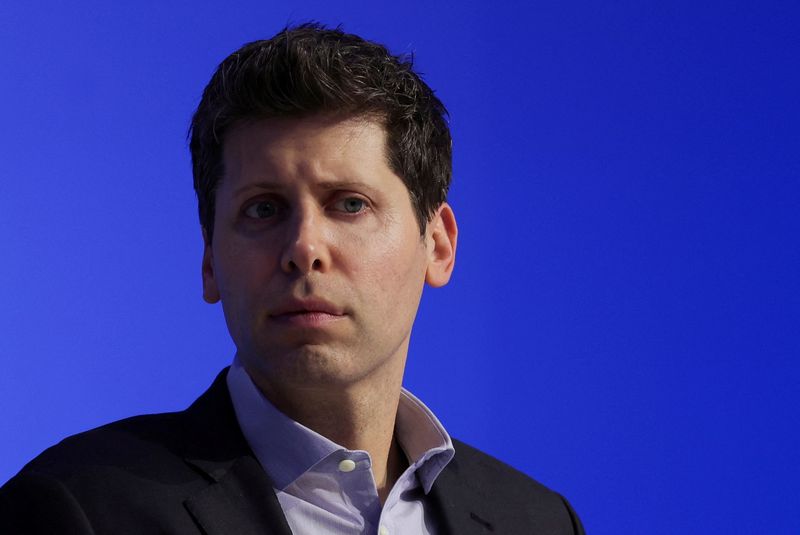Investing.com-- Microsoft will take a spot in OpenAI’s board of directors, returning CEO Sam Altman said on Thursday, as the artificial intelligence firm stabilizes after a major upheaval in its leadership earlier in November.
Microsoft Corporation (NASDAQ:MSFT), which has invested billions of dollars in OpenAI, will have a non-voting, observer role in the AI start-up’s revamped board, which will initially consist of Chair Bret Taylor, former U.S. Treasury Secretary Larry Summers and Quora CEO Adam D’Angelo, Altman said in a blog post on OpenAI’s website.
D’Angelo is the only remaining member from OpenAI’s previous board, which was ousted after its abrupt decision to remove Altman as CEO sparked ire among OpenAI employees, and also spurred concerns among the AI firm’s investors.
Altman was set to return in-principle after the board caved to employee and investor pressure, with Thursday’s announcement marking his official return as OpenAI’s CEO. He was initially offered a role at Microsoft after his sudden departure, as was President Greg Brockman, who had quit in solidarity with Altman.
“We clearly made the right choice to partner with Microsoft and I’m excited that our new board will include them as a non-voting observer,” Altman said.
The OpenAI CEO said he harbored “zero ill will” towards Ilya Sutskever, OpenAI’s co-founder and chief scientist, who was part of the board that had attempted Altman’s ouster. “While Ilya will no longer serve on the board, we hope to continue our working relationship and are discussing how he can continue his work at OpenAI,” Altman said.
The company’s top leadership will now consist of Altman back as CEO, Mira Murati as chief technical officer and Greg Brockman as president.
It was not immediately clear who Microsoft will appoint to the OpenAI board.
But the move highlights the growing ties between the two companies, as Microsoft moves to integrate and leverage OpenAI technology into more of its software products.
OpenAI sparked a rush into generative AI technology this year with the release of its ChatGPT tool, which is capable of generating convincing and elaborate text responses to prompts.
The tool sparked a rush among major tech companies to come up with their own, similar offerings.
